Iran will be opening new chapter with Iraq: Zarif
Iranian Foreign Minister Mohammad Javad Zarif says an upcoming visit by President Hassan Rouhani to Iraq — the president’s first — will be the beginning of a new chapter in Tehran-Baghdad relations.
“Mr. Rouhani is traveling to Iraq for the first time in his presidency, and we consider the trip a new start in our relations with Iraq,” Zarif told the Iraqi al-Forat satellite TV network in an interview aired on Saturday.
Zarif referred to the measures of cooperation that are scheduled to be bilaterally approved during the Iranian president’s visit to Iraq and called them “historic.” New cooperation, he said, will be in the areas of transit, oil, joint industrial work, and the dredging of Arvand River.
The Iranian president will be starting his three-day visit to Iraq on Monday.
Zarif, who arrived in Iraq on Saturday evening, said Iran and Iraq shared not just a border but historical commonalities as well as interests.
“We plan to use those commonalities to advance the joint interests of both countries as well as those of the region,” he said.
Iran’s message to region from Iraq
The Iranian foreign minister said Iran was seeking to send a message [to the region] during President Rouhani’s trip to Iraq.
“In Iraq, we will be sending a message of regional cooperation. We don’t see Iraq as a place of conflict [with Iran’s regional rivals]; we see it as a place of cooperation with regional countries,” Foreign Minister Zarif said.
Saudi Arabia, which perceives Iran as its main adversary and which has severed its ties with Tehran, has been viewing Iraq as a battle zone where it needs to curb Iranian influence.
Zarif also said Iran viewed Iraq as “an important pillar of regional security,” without whose cooperation, regional security would be impossible.
“Thus, it is necessary for Iran and Iraq to cooperate, beside the other countries of the region, toward [bringing about] security for the region,” he said.
He said no regional country had to be excluded from regional decision-making.
‘US pressing Iraq to cut Iran ties’
“We don’t want Iraq to cut relations with any other country,” Zarif said. “Sadly, it is the Americans who are pressuring Iraq not to have neighborly ties with Iran.”
The Iranian foreign minister also thanked Iraqi people and officials for their “principled stand” in support of Iran and against unilateral US sanctions against the Islamic Republic.
‘Iran welcomes regional talks’
Asked about a proposal by Ammar Hakim — the head of Iraq’s National Wisdom Movement (Hikma) — for regional talks among Iran, Iraq, Turkey, Saudi Arabia, and Egypt, Zarif said Iran welcomed “all proposals for regional cooperation.”
“We have a principle: regional cooperation should be inclusive and should be targeted against no one; all countries in our region should be involved in such cooperation,” the Iranian foreign minister said.
He explained that by regional countries, he meant Persian Gulf states, as well as countries further afield, such as Egypt and Jordan.
He cited the cooperation of Iran, Russia, and Turkey regarding the Syrian peace process in the Kazakh capital of Astana as an example of good regional work.
Whom the region concerns and whom it does not
The Islamic Republic, he stressed however, has never held talks with outsiders about the future of the region and has always said that the fate of the region should be determined by the region itself.
Turning to Saudi Arabia, Zarif said in the interview that while Iran had always been ready for dialog, Riyadh had shown no such willingness.
The Iranian foreign minister recalled that he sent multiple messages to Saudi officials expressing readiness for bilateral and regional cooperation when he took office in 2013, to which they responded, “The region does not concern you!”
“It is now evident whether the region concerns us or not!” Zarif said.
Iran has helped effectively bring an end to the Syrian conflict by offering Damascus military advisory help and has been facilitating a diplomatic end for Syria through cooperation with Turkey and Russia. This is while Saudi Arabia was among the countries that funded anti-Damascus militant groups in an attempt to oust President Bashar al-Assad.
‘Talks with Trump would not be very useful’
Asked about the possibility of talks with US President Donald Trump, Zarif said dialog had to be founded on respect, which was lacking on Trump’s part.
Last year, Trump unilaterally pulled the US out of a multilateral deal with Iran. As a party to that deal, Washington had been involved in negotiations that led to the agreement.
“If you do not respect even your own words, one cannot expect you to respect (and uphold) a deal. Therefore, I don’t believe dialog [with the Trump administration] would be very useful,” Zarif said.
VIDEO | Press TV's news headlines
Iran FM: Response to Israeli aggression 'inevitable'
VIDEO | Iran eases the rules for exporting hand-woven carpets
VIDEO | Intl. Day for the Elimination of Violence against Women: A stark reminder of Gaza women
Australia denies ex-Israeli minister Shaked visa
VIDEO | 85% of Yemeni displaced people face daily hunger crisis
US House passes bill targeting charities and pro-Palestine groups
VIDEO | Supporting Gaza genocide





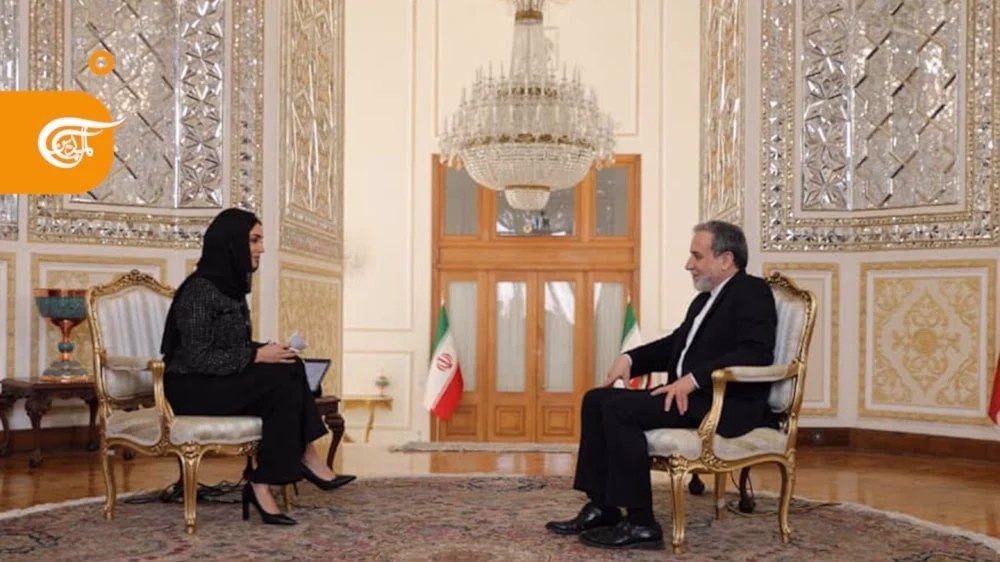
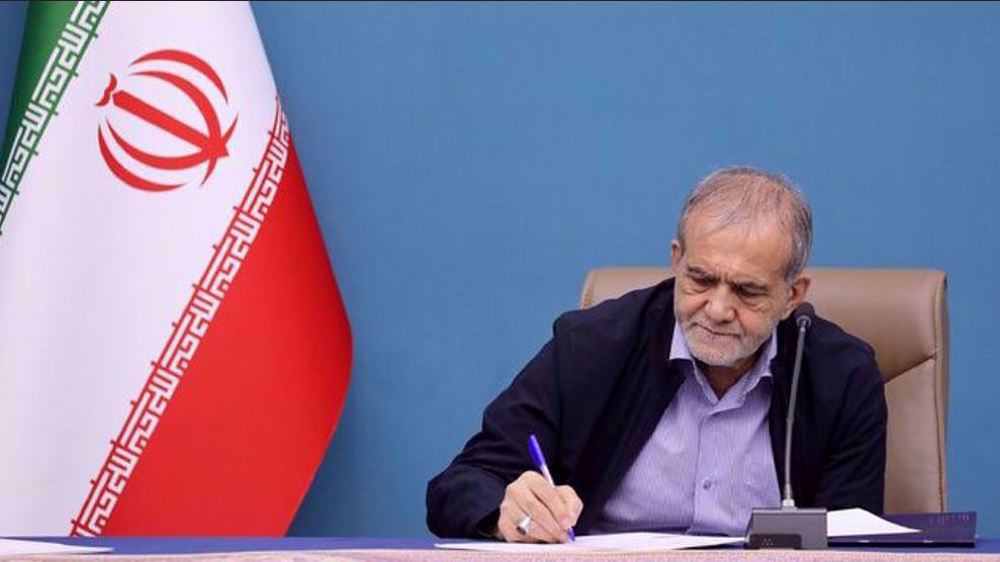
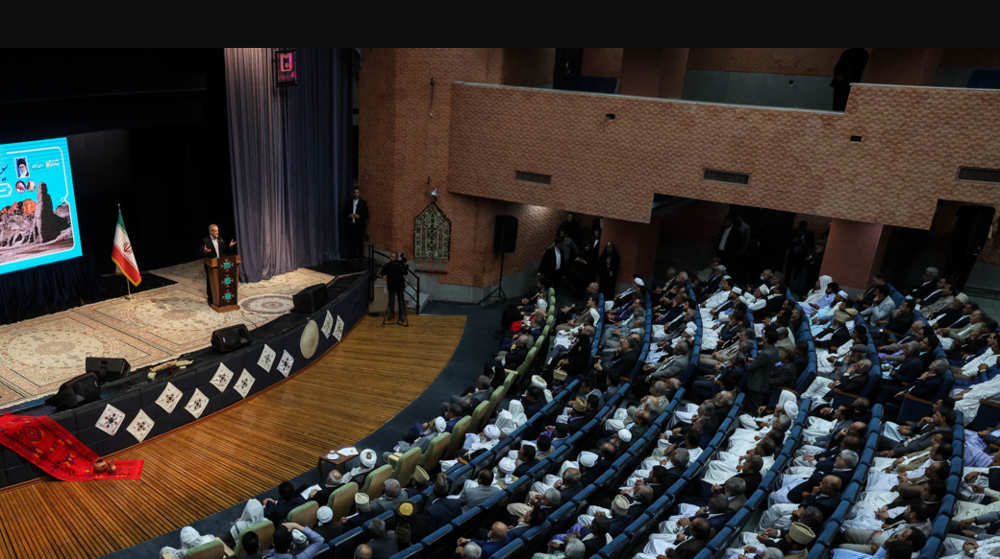




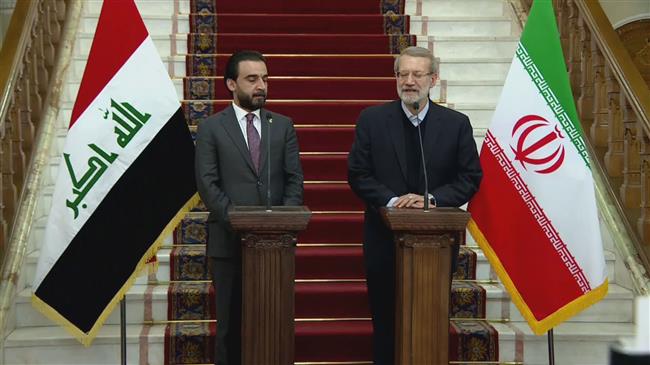


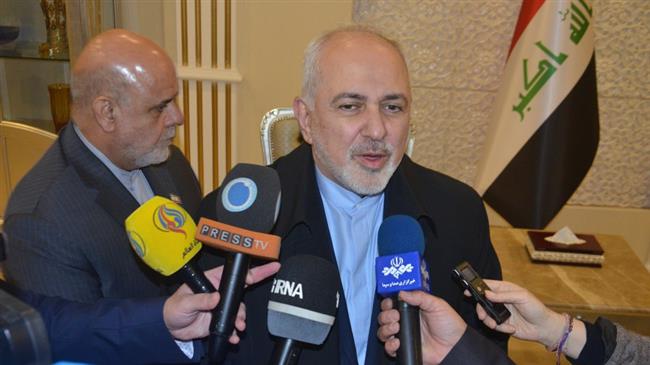

 This makes it easy to access the Press TV website
This makes it easy to access the Press TV website